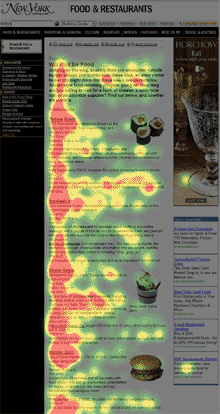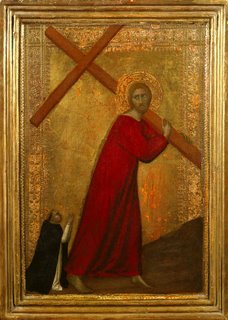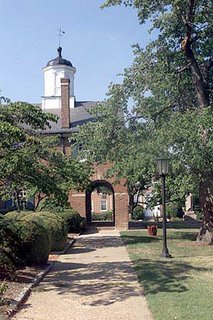Solitude and Hope: Y'all Come Visit!
Publick and Privat Curiosities: Articles Related to News, Politics, Society, Gay Issues, Psychology, Humor, Music and Videos.April 28, 2006
Invention and Creativity
The following is alleged to be a (bogus?) bonus question given on a recent undergraduate chemistry final examination.
The answer by one student was so "profound" and delightful that I wanted you to have the pleasure of enjoying it as well. Since the student is a young person, readers should be understanding if the rhythm of the student’s commentary becomes somewhat “bawdy” at times.
Subject: Discussion of the interaction(s)between the concepts of exothermic (gives off heat) and endothermic (absorbs heat), as well as the opposite. Your deliberation should indicate an awareness of contemporary relational psychology as seen through various publicly acknowledged categorical perspectives, such psychology, psychoanalysis, a non-conflictual model or framework of philosophy, hard science and religion. Your discussion should be entirely clear to the average person, working or non-working, and the conclusion(s) should be creatively surprising, engendering feelings of satisfaction and pleasure. While extremely rigorous, the tone of the discussion should convey a strong sense of interest in the need to promote a renewed public attentiveness toward efforts to bolster current or creatively develop new techniques to reduce the tension/stress sometimes induced by practical and interpersonal demands in everyday life.
Bonus Question: Is Hell exothermic (gives off heat) or endothermic (absorbs heat)?
Mot of the students wrote proofs of their beliefs using Boyle's Law that gas cools when it expands and heats when it is compressed or some variant. One student, however, wrote the following:
First, we need to know how the mass of Hell is changing in time. So we
need to know the rate at which souls are moving into Hell and the rate at which they are leaving. I think that we can safely assume that once a soul gets to Hell, it will not leave. Therefore, no souls are leaving. As for how many souls are entering Hell, let's look at the different religions that exist in the world today. Most of these religions state that if you are not a member of their religion, you will go to Hell. Since there is more than one of these religions and since people do not belong to more than one religion, we can project that all souls go to Hell.
With birth and death rates as they are, we can expect the number of souls in Hell to increase exponentially. Now, we look at the rate of change of the volume in Hell. Because Boyle's Law states that in order for the temperature and pressure in Hell to stay constant, the volume of Hell must expand proportionately as souls are added.
This leaves two major possibilities, although there surely may be more:
1. If Hell is expanding at a slower rate than the rate at which souls enter Hell, then the temperature and pressure in Hell will increase until all Hell breaks loose.
2. If Hell is expanding at a rate faster than the increase of souls in Hell, then the temperature and pressure will drop until Hell freezes over.
So which might it be?
If we accept the postulate given to me by Sandra during my freshman year that "it will be a cold day in Hell before I sleep with you," and take into account the fact that I slept with her last night, then number 2 must be true, and thus I am sure that Hell is endothermic and has already frozen over.
The corollary of this theory is that since Hell has frozen over, it follows that it is not accepting any more souls and is extinct...leaving only Heaven, thereby proving the existence of a divine being. This clear proof of a divine being explains why, just last night, Sandra kept shouting "Oh my God."
THIS STUDENT RECEIVED THE ONLY "A" GIVEN IN THE CLASS.
The answer by one student was so "profound" and delightful that I wanted you to have the pleasure of enjoying it as well. Since the student is a young person, readers should be understanding if the rhythm of the student’s commentary becomes somewhat “bawdy” at times.
Subject: Discussion of the interaction(s)between the concepts of exothermic (gives off heat) and endothermic (absorbs heat), as well as the opposite. Your deliberation should indicate an awareness of contemporary relational psychology as seen through various publicly acknowledged categorical perspectives, such psychology, psychoanalysis, a non-conflictual model or framework of philosophy, hard science and religion. Your discussion should be entirely clear to the average person, working or non-working, and the conclusion(s) should be creatively surprising, engendering feelings of satisfaction and pleasure. While extremely rigorous, the tone of the discussion should convey a strong sense of interest in the need to promote a renewed public attentiveness toward efforts to bolster current or creatively develop new techniques to reduce the tension/stress sometimes induced by practical and interpersonal demands in everyday life.
Bonus Question: Is Hell exothermic (gives off heat) or endothermic (absorbs heat)?
Mot of the students wrote proofs of their beliefs using Boyle's Law that gas cools when it expands and heats when it is compressed or some variant. One student, however, wrote the following:
First, we need to know how the mass of Hell is changing in time. So we
need to know the rate at which souls are moving into Hell and the rate at which they are leaving. I think that we can safely assume that once a soul gets to Hell, it will not leave. Therefore, no souls are leaving. As for how many souls are entering Hell, let's look at the different religions that exist in the world today. Most of these religions state that if you are not a member of their religion, you will go to Hell. Since there is more than one of these religions and since people do not belong to more than one religion, we can project that all souls go to Hell.
With birth and death rates as they are, we can expect the number of souls in Hell to increase exponentially. Now, we look at the rate of change of the volume in Hell. Because Boyle's Law states that in order for the temperature and pressure in Hell to stay constant, the volume of Hell must expand proportionately as souls are added.
This leaves two major possibilities, although there surely may be more:
1. If Hell is expanding at a slower rate than the rate at which souls enter Hell, then the temperature and pressure in Hell will increase until all Hell breaks loose.
2. If Hell is expanding at a rate faster than the increase of souls in Hell, then the temperature and pressure will drop until Hell freezes over.
So which might it be?
If we accept the postulate given to me by Sandra during my freshman year that "it will be a cold day in Hell before I sleep with you," and take into account the fact that I slept with her last night, then number 2 must be true, and thus I am sure that Hell is endothermic and has already frozen over.
The corollary of this theory is that since Hell has frozen over, it follows that it is not accepting any more souls and is extinct...leaving only Heaven, thereby proving the existence of a divine being. This clear proof of a divine being explains why, just last night, Sandra kept shouting "Oh my God."
THIS STUDENT RECEIVED THE ONLY "A" GIVEN IN THE CLASS.
April 27, 2006
Capote: The Great American "Drama Queen"
A very recent review by Stephen Metcalf (Slate Magazine) of the film Capote presents one of the most compelling and intelligent examinations of this film to date:
The Great American Drama Queen: How Capote the film explains Capote the writer.
Along with everyone else who waited to see Capote on DVD, I had heard two things about it. First, of course, was that in playing Truman Capote, Philip Seymour Hoffman had delivered the performance of a lifetime. Second was that although Capote was a superlative film, it was also a small one.
About Hoffman, what more needs to be said? To transform himself into Capote, he parted with one of his great natural assets, that oak-and-gravel basso, trading it for Capote's famous lisps and trills with their odd levitations and sudden plunges—a unique instrument, to say the least. But the performance is not an impersonation, and, as Hoffman himself insists on one of the DVDs well-produced featurettes, Capote is not a biopic.
Which leads us to the second notion, that it was an accomplished but modest movie. True, in contrast to that awful midwife of race sentimentality Crash, none of Capote's importance shows up as self-importance. But tact should never be mistaken for lack of ambition. Capote is not only an American tragedy, as its director Bennett Miller has said, but an important one, and a little history can help us remember why.
In 1959, Truman Capote traveled from New York City to Holcomb, Kansas, with the backing of The New Yorker magazine and with his childhood friend Harper Lee, to write about the brutal murder of a family of small-town farmers. While Capote worked on his initial magazine articles, the killers, Dick Hickock and Perry Smith, were apprehended; as Hickock and Perry were tried, convicted of capital murder and eventually hanged, Capote spun their story into a full-length book.
Capote's creation of In Cold Blood, a masterpiece that made the author of Breakfast at Tiffany's only more famous, is the stuff of legend. Famously, Capote ingratiated himself with the Kansas locals, who had initially looked upon this epicene miniature in a pillbox hat as a kind of freak; and famously, he fell semi-in-love with Perry Smith, the more vicious (yet more sensitive) of the two killers.
The extent to which Capote manipulated Smith into believing that he, Capote, a man with money and connections, could help a nobody like Smith win an appeal has long been disputed. So too has the extent to which Capote, a raconteur whose "lies were better than other people's truths," as one friend put it, embroidered reality in creating his nonfiction potboiler.
The misapprehension of Capote as a small movie begins with its own dedication to small moments. Early on it is a comedy of manners, in which a small town adjusts itself to the presence of a New York literary god, even as the New York literary god adjusts himself to the small town, in order to get it to talk.
As the film progresses, so does Capote's obsession with Smith, whom he came to regard as a version of himself. "It's as if Perry and I grew up in the same house," Capote told Harper Lee, "then one day, he walked out the back door, and I walked out the front." Lee, increasingly the moral center of the movie, replied "You kidding?"
But Capote is not really a study of Capote's relationship with Smith. As Smith idled in his cell, poring over a copy of Walden given to him by Capote, Capote was reading early chapters of his work-in-progress to a rapt New York audience. Later Capote summed up his feeling for Smith, hardly even noticing his words. "Do you hold him in esteem, Truman?" Lee asked him. "Well. He's a goldmine."
Capote's enormous power comes from its embodiment of all the virtues that Capote the man eventually rejected: tact, self-control and reticence. The film's palette is autumnal, one nice nugget from the DVD reveals how the color scheme of the film excluded entirely all reds and blues in favor of muted yellows and browns, and the film's pacing is deliberate, even stately.
The movie argues, as others have, that the experience of courting Perry Smith in order to write In Cold Blood broke something within Capote and speeded his transition from the boy-sylph of apparently limitless talent, who published Other Voices, Other Rooms when he was 23, to the bitchy society lapdog of the 1970s talk-show circuit. As a closing inter-title points out, Capote never published another book before dying of alcoholism in 1984.
Within a year of publishing In Cold Blood, Capote had thrown the Black and White Ball, an affair at the Plaza Hotel that established, to the terror-laced glee of the haute mode, who was in and who was out in New York society. It was a harbinger of the Studio 54 Capote.
A depressing anecdote dating from the '70s has Capote inviting the gossip columnist Liz Smith and John Berendt, later to write Midnight in the Garden of Good and Evil, up to his apartment in the U.N. Plaza. Capote was said to have left the room, then returned with a giant bowl of cocaine, which Smith guessed at the time represented $10,000 worth of the drug. As suddenly as he had brandished it, Capote snatched it away, saying, "No. No. I'm not going to give you any. You're not good enough. Neither one of you is good enough."
Capote's surface modesties aside, the moment in which a writer of importance confronts a man of no importance is not a small one, especially in America, and especially if the man of no importance is about to be blotted out forever by forces that lie beyond his comprehension. This Capote at least dimly understood, and the film has him saying of Smith, "The book I'm writing will return him to the realm of humanity."
Less dimly understood, by Capote and by (at least in the film's telling) his New Yorker editor William Shawn, is how In Cold Blood instigated a new kind of writing, the so-called "nonfiction novel."
It's an awful phrase (as Norman Mailer once said, "Nonfiction novel sounds like a prescription for some nonspecific disease"). But the mixing of the high (Capote's refined literary sensibility) with the low (the "true crime" genre) in order to gain access to reality has a long literary pedigree.
It extends back to the Gospels and Peter's denial of Jesus, which, as Erich Auerbach famously (and beautifully) argued, destroyed forever the classical connection between the seriousness of high style and aristocratic characters. As Auerbach wrote in Mimesis:
Of course this mingling of styles is not dictated by an artistic purpose. On the contrary, it was rooted from the beginning in the character of Jewish-Christian literature; it was graphically and harshly dramatized through God's incarnation in a human being of the humblest social station, through the existence on earth amid humble everyday people and conditions, and through his Passion which, judged by earthly standards was ignominious.
What Auerbach said of Peter, "He is the image of man in the highest and deepest and most tragic sense," applies as well to Perry Smith. The upending of strict canons of high and low runs through Dante's choice, according to Auerbach, a choice that laid the foundation for European literature, to write his epic in vulgar Italian, and not high Latin.
It was there when Capote knew he had to go to Kansas; and every time a literary journalist, as heir to Capote, establishes the humanity of his subject through simple detail. All this Capote eventually forsook for "You're not good enough."
Adapted by the Author from:
Stephen Metcalf
Slate Magazine
April 26, 2006
The Great American Drama Queen: How Capote the film explains Capote the writer.
Along with everyone else who waited to see Capote on DVD, I had heard two things about it. First, of course, was that in playing Truman Capote, Philip Seymour Hoffman had delivered the performance of a lifetime. Second was that although Capote was a superlative film, it was also a small one.
About Hoffman, what more needs to be said? To transform himself into Capote, he parted with one of his great natural assets, that oak-and-gravel basso, trading it for Capote's famous lisps and trills with their odd levitations and sudden plunges—a unique instrument, to say the least. But the performance is not an impersonation, and, as Hoffman himself insists on one of the DVDs well-produced featurettes, Capote is not a biopic.
Which leads us to the second notion, that it was an accomplished but modest movie. True, in contrast to that awful midwife of race sentimentality Crash, none of Capote's importance shows up as self-importance. But tact should never be mistaken for lack of ambition. Capote is not only an American tragedy, as its director Bennett Miller has said, but an important one, and a little history can help us remember why.
In 1959, Truman Capote traveled from New York City to Holcomb, Kansas, with the backing of The New Yorker magazine and with his childhood friend Harper Lee, to write about the brutal murder of a family of small-town farmers. While Capote worked on his initial magazine articles, the killers, Dick Hickock and Perry Smith, were apprehended; as Hickock and Perry were tried, convicted of capital murder and eventually hanged, Capote spun their story into a full-length book.
Capote's creation of In Cold Blood, a masterpiece that made the author of Breakfast at Tiffany's only more famous, is the stuff of legend. Famously, Capote ingratiated himself with the Kansas locals, who had initially looked upon this epicene miniature in a pillbox hat as a kind of freak; and famously, he fell semi-in-love with Perry Smith, the more vicious (yet more sensitive) of the two killers.
The extent to which Capote manipulated Smith into believing that he, Capote, a man with money and connections, could help a nobody like Smith win an appeal has long been disputed. So too has the extent to which Capote, a raconteur whose "lies were better than other people's truths," as one friend put it, embroidered reality in creating his nonfiction potboiler.
The misapprehension of Capote as a small movie begins with its own dedication to small moments. Early on it is a comedy of manners, in which a small town adjusts itself to the presence of a New York literary god, even as the New York literary god adjusts himself to the small town, in order to get it to talk.
As the film progresses, so does Capote's obsession with Smith, whom he came to regard as a version of himself. "It's as if Perry and I grew up in the same house," Capote told Harper Lee, "then one day, he walked out the back door, and I walked out the front." Lee, increasingly the moral center of the movie, replied "You kidding?"
But Capote is not really a study of Capote's relationship with Smith. As Smith idled in his cell, poring over a copy of Walden given to him by Capote, Capote was reading early chapters of his work-in-progress to a rapt New York audience. Later Capote summed up his feeling for Smith, hardly even noticing his words. "Do you hold him in esteem, Truman?" Lee asked him. "Well. He's a goldmine."
Capote's enormous power comes from its embodiment of all the virtues that Capote the man eventually rejected: tact, self-control and reticence. The film's palette is autumnal, one nice nugget from the DVD reveals how the color scheme of the film excluded entirely all reds and blues in favor of muted yellows and browns, and the film's pacing is deliberate, even stately.
The movie argues, as others have, that the experience of courting Perry Smith in order to write In Cold Blood broke something within Capote and speeded his transition from the boy-sylph of apparently limitless talent, who published Other Voices, Other Rooms when he was 23, to the bitchy society lapdog of the 1970s talk-show circuit. As a closing inter-title points out, Capote never published another book before dying of alcoholism in 1984.
Within a year of publishing In Cold Blood, Capote had thrown the Black and White Ball, an affair at the Plaza Hotel that established, to the terror-laced glee of the haute mode, who was in and who was out in New York society. It was a harbinger of the Studio 54 Capote.
A depressing anecdote dating from the '70s has Capote inviting the gossip columnist Liz Smith and John Berendt, later to write Midnight in the Garden of Good and Evil, up to his apartment in the U.N. Plaza. Capote was said to have left the room, then returned with a giant bowl of cocaine, which Smith guessed at the time represented $10,000 worth of the drug. As suddenly as he had brandished it, Capote snatched it away, saying, "No. No. I'm not going to give you any. You're not good enough. Neither one of you is good enough."
Capote's surface modesties aside, the moment in which a writer of importance confronts a man of no importance is not a small one, especially in America, and especially if the man of no importance is about to be blotted out forever by forces that lie beyond his comprehension. This Capote at least dimly understood, and the film has him saying of Smith, "The book I'm writing will return him to the realm of humanity."
Less dimly understood, by Capote and by (at least in the film's telling) his New Yorker editor William Shawn, is how In Cold Blood instigated a new kind of writing, the so-called "nonfiction novel."
It's an awful phrase (as Norman Mailer once said, "Nonfiction novel sounds like a prescription for some nonspecific disease"). But the mixing of the high (Capote's refined literary sensibility) with the low (the "true crime" genre) in order to gain access to reality has a long literary pedigree.
It extends back to the Gospels and Peter's denial of Jesus, which, as Erich Auerbach famously (and beautifully) argued, destroyed forever the classical connection between the seriousness of high style and aristocratic characters. As Auerbach wrote in Mimesis:
Of course this mingling of styles is not dictated by an artistic purpose. On the contrary, it was rooted from the beginning in the character of Jewish-Christian literature; it was graphically and harshly dramatized through God's incarnation in a human being of the humblest social station, through the existence on earth amid humble everyday people and conditions, and through his Passion which, judged by earthly standards was ignominious.
What Auerbach said of Peter, "He is the image of man in the highest and deepest and most tragic sense," applies as well to Perry Smith. The upending of strict canons of high and low runs through Dante's choice, according to Auerbach, a choice that laid the foundation for European literature, to write his epic in vulgar Italian, and not high Latin.
It was there when Capote knew he had to go to Kansas; and every time a literary journalist, as heir to Capote, establishes the humanity of his subject through simple detail. All this Capote eventually forsook for "You're not good enough."
Adapted by the Author from:
Stephen Metcalf
Slate Magazine
April 26, 2006
April 25, 2006
Bloggers: Important New Internet Alert!
An Astonishing Scientific Discovery!
Alert Box, www.useit.com/alert box
notes
that
a
new
study
of
eye-tracking
visualizations has found that people run
their
eyes
over
Internet
pages
in
an
F-shaped
pattern,
interestingly
enough.
























